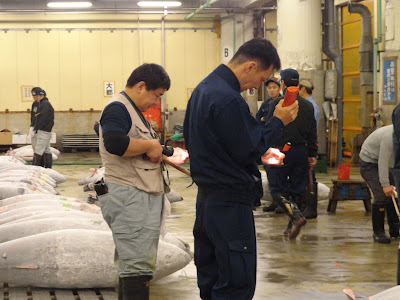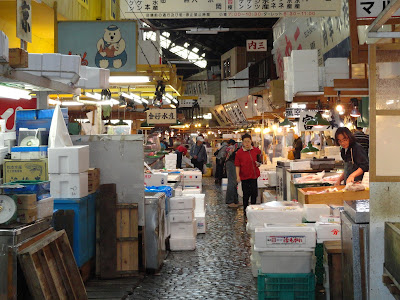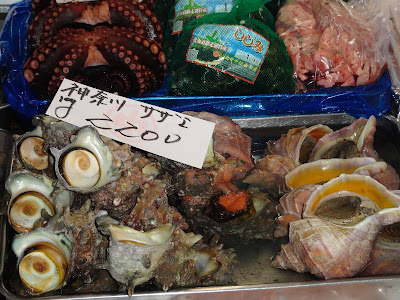Japan, the ultimate culture
difference… or similarity?!
It
has been a year since I traveled to Japan for a three month (life-changing) experience.
Japan! “You couldn’t have travelled further away from the Netherlands!” “What a
culture shock it will be!” “Won’t you become tired of sushi?” … These were few of the common sentences I heard
previous to my departure. But nothing could have been more different! Yes, it
was far away. But geographical location is nowadays surpassed in a few hours.
Yes, it is a different culture. Yet, more similar to my own culture than I
could have ever imagined before; such a hospitable, friendly and helpful people,
made me feel at ease from day one. And no, I wasn’t tired of sushi! Either
because it is extremely good (oishii!
I mean, delicious!) or because there is plenty of other food options I had
never heard of before!
28th
of September 2013, 5 am. Tokyo Haneda International airport. Signs in English.
Clear information on transportation to the city centre. Twice, helped by
gentlemen with my big suitcase and even bigger backpack up the stairs of the
metro. 8 am arriving at the Tokyo Medical and Dental University where Mrs.
Kawashima (or would it be a Mr.?!?)
would be waiting for me. Minutes after I surprised the security people and
under the curious looks of the patients entering the faculty, a friendly young
woman came to me, as excited to meet me as I was to meet her! She took me on a
tour around the huge dental school, where the patients’ folders run in rails in
the ceiling (no digital folders in a country where high-technology is world
known?!). I was introduced to all the staff members I would come across in the
following months, and whose names I would take a few days to understand and be
able to say correctly. “Ana chan” would be my name from then on. She gave me a
free corner in an overcrowded office, and took me for lunch in an udon restaurant. First proof of my
skills with the chopsticks! Result: all the soup speckled on the table and on
myself and little inside my stomach. But nobody around seemed to be paying
attention! Uff! Next, she showed me the accommodation: a room with an all
geared up bathroom (literally tons of buttons for different purposes!), a
fridge and a stove burner. “Don’t you have a rice cooker?” I was asked many
times by worried Japanese friends! I haven’t even heard about this apparently
indispensable kitchenware before, so I was sure I would survive without one! (And
I did!)
During the
three months I’ve found my way around. It was only time enough to start
understanding a bit of it, but I started loving it from day one. I’ve travelled
as much as I could, tried all the different food I was given and spoke with as
many people I came across with to get the most out of the stay. Relish Lake
Kawaguchi with the impressive view of Mount Fuji, hike in Mount Takao during
the red leaves season, walk along the breath taking Hiroshima peace memorial
park, prize beautiful Nikko, relax in an open air onsen (hot spring), admire the ultimate femininity of the geiko in the streets of Kyoto, feel the
vibrant Osaka and contrasting quietness of Izu peninsula, visit the spectacular
temples around every corner, experience the vertiginous bullet train, eat the
delicious Kobe beef and high quality sushi and assist the elegant tea ceremony,
and of course, live the astonishing fast speed Tokyo… are only a few “must do”.
Among the PhD
students I’ve learned the trivialities of the Japanese culture, habits and even
some words. They were always pleased to take me around the city, teach me the
hidden meaning of a character, a temple, a ceremony; they were thankful I could
speak “slow understandable English” and were delighted with my basic Japanese
(Yes, I’ve tried to follow a short basic Japanese language course). In the lab (or
labô, as they say) I’ve worked with
enthusiastic researchers which help was invaluable to reach my goal in such
short time. The contact with the sensei
(senior researchers, “masters”) was personally and professionally enriching.
And specially the friendship I felt and I still keep are a priceless gain of
this experience.
Everyone
knows Sayonara (good bye), but with
those friends I’ve learned Matane
(see you soon), and that’s what I’ve said to myself before the flight back:
Matane Japan, you’ll always be in my heart and I hope to come back one day.
Arigato
gozaimasu!































































































































